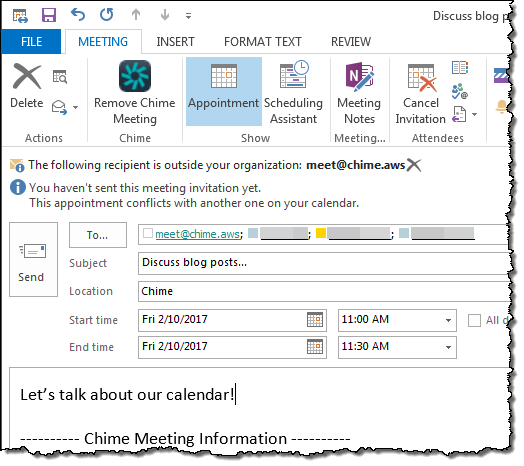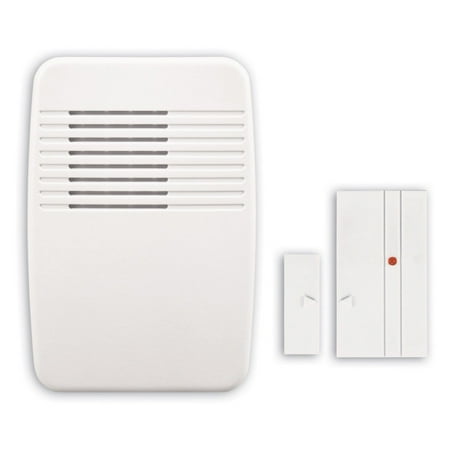Download Chime Pc Suite
Posted By admin On 27.09.19Share When you think of social media, sites like Facebook and Twitter probably come to mind immediately. But messenger apps in terms of users. And increasingly. The leader in most of the world is WhatsApp (a pun on the phrase “what’s up”), with around the world. That kind of market penetration can’t be ignored. But how can you effectively use WhatsApp for marketing? Like all relatively unexplored frontiers, there are equal measures of risk and reward for early adopters.
Here’s our marketer’s guide to WhatsApp. Bonus: Download a free guide that reveals how to increase social media engagement with better audience research, sharper customer targeting, and Hootsuite’s easy-to-use social media software. What is WhatsApp?
WhatsApp is a free mobile app that uses your phone’s internet connection to let you chat with other WhatsApp users, without SMS text message charges. The app also lets you share files and images, and supports free voice and video calls.
View and Download DSC ALEXOR user manual online. ALEXOR Security System pdf manual download.
Its support for a wide range of phones has made it especially popular in areas with high SMS charges, including Brazil, Mexico, and of the population uses WhatsApp. In fact, it’s the most popular alternative to SMS in, or 55.6 percent of the world. While Facebook acquired WhatsApp for in February 2014, it’s been operating as a separate entity since then, and hasn’t yet seen the same marketing-friendly features as. How to use WhatsApp WhatsApp has versions for iPhones, as well as Windows phone, the Nokia S40, BlackBerry, the Nokia S60, and the BlackBerry 10. There’s also a web app and desktop versions for Mac or Windows PCs, but you need to have it installed on your mobile phone first, since each WhatsApp account is tied directly to a single phone number. Once you download and install the app, you need to confirm your country and enter your telephone number.
To set up your profile, you can either import your Facebook information with a single click, or manually add an image and add a profile name (which you can change later). WhatsApp uses the phone numbers from your phone’s contact list to show you an up-to-date directory of WhatsApp users who you already know. Anyone who has your phone number in their phone’s address book will automatically see your listing, too, unless you change your privacy settings.
There are three basic ways to share messages, photos, and videos using WhatsApp. One-to-one chat Like other chat programs, you can chat directly with another user who is in your phone’s contact list. You can also call or video call them, or even record snippets of audio to text to them. Broadcast lists When you, it will go to anyone in the list who has your number saved in their phones’ address book. They’ll see the message as a normal message, similar to the BCC (blind carbon copy) function in email.
If they reply, it will appear as a normal, one-to-one message in your chats screen, and their reply won’t be sent to anyone else in that broadcast list. Broadcast lists are limited to 256 contacts. Groups let you message with up to 256 people at once, sharing messages, photos, and videos. Everyone in the group chat can chime in and also see everyone else’s responses.
Why should you use WhatsApp for business? The best reason to use WhatsApp for business is that many of your customers are probably already using it.
Chime Pc Suite Download

More than are sent through WhatsApp every single day. Surprisingly, users of WhatsApp and similar services are willing to engage with businesses.
According to, 67 percent of mobile messaging app users said they expect to use chat more for communicating with businesses over the next two years. What’s more, 53 percent of respondents say they’re more likely to shop with a business they can message directly. If your customers and prospects are young, they’re more likely to be comfortable using messaging apps for their day-to-day communication. A study by shows that 42 percent of smartphone owners between 18 and 29 years old use messaging apps like WhatsApp, compared with only 19 percent of smartphone owners who are 50 or older. Plus, messaging apps like WhatsApp have incredible engagement rates: of mobile messages are opened and read, with 90 percent of them getting opened within three seconds of being received.

WhatsApp may already be a key way for your audience to share content via —a term to describe when people share content through private channels such as email or chat apps like WhatsApp, as opposed to more public networks like Facebook. In fact, a huge majority of sharing online——now takes place on private channels like messaging apps, so even if you’re not using WhatsApp to market your business, your prospects are likely using it to extend your content’s reach already. WhatsApp marketing strategies and tips Since WhatsApp doesn’t sell ad space or have any business-specific features (yet) you have to be innovative in your marketing approach. While WhatsApp is different in its reach and features than other messenger apps, it’s important to develop your WhatsApp strategy alongside your general.
There are a few limitations you need to address when developing your WhatsApp marketing strategy. First of all, there is no such thing as a business account, so if your brand is creating an account it faces the same limitations as any other user. Since each WhatsApp account is tied directly to a single mobile phone number—and you can only message with up to 256 WhatsApp users at once—it isn’t a good choice for large-scale, one-to-many marketing. So your chances of success are higher when you use its limitations to your advantage. Remember that, like other mobile messaging services, part of the power of WhatsApp is that it’s tied to our phones, which tend to seem more personal to us than our computers—they’re not shared and we carry them everywhere. So any marketing campaigns you tackle should reflect (and respect) the personal aspect.
This is where consumers interact with their friends, so trust and creativity is key. Not surprisingly, some of the best examples of effective WhatsApp campaigns hail from regions with the highest penetration, including South America. Here are some case studies of brands who have made an impact using WhatsApp for marketing. Create a brand persona to chat with users and build buzz When Absolut Vodka launched their Limited Edition Absolut Unique bottle collection in Argentina WhatsApp was a natural place to try and build buzz, since of the country’s mobile phone users were on the app at the time.

For the launch they decided to host a very exclusive party. There were only two invitations available to the public. Anyone wanting to win these tickets had to use WhatsApp to contact an imaginary bouncer named Sven and convince him to let them go.
The campaign generated over 1,000 unique images, videos, and audio messages people created to convince Sven, and built buzz in the community. Offer one-on-one help to inspire new uses for a product Hellmann’s in Brazil wanted to inspire people to think of mayonnaise as a cooking ingredient, not just a condiment. So they invited visitors to their website to submit their phone numbers along with a picture of the contents of their refrigerator. They were then connected through WhatsApp with real chefs, who came up with a recipe using Hellmann’s and the other ingredients in their fridge. The chefs even taught the users how to cook the meal through pictures, videos, and other WhatsApp features. A total of 13,000 participants spent an average of 65 minutes interacting with the brand, and 99.5 percent of them approved of the service. The brand was so happy with the results from the Brazilian campaign, they rolled it out to Argentina, Chile, Uruguay and Paraguay.
Offer discreet advice and service to high-value customers High-end lingerie brand Agent Provocateur has been on new arrivals and events at the brand’s stores for a while now. Customers can also ask advice from the privacy of of the messenger service. The approach was so popular with VIPs that Agent Provocateur’s launched a similar WhatsApp promotion named for all customers last Christmas. WhatsApp users could invite a personal shopper into a group conversation with their partner to discuss what they wanted for Christmas. Agent Provocateur’s team of style advisers answered the questions manually, engaging with each couple. While it was a small campaign—with 112 conversations taking place—31 percent of the chats resulted in store visits and 61 percent converted to website traffic.
WhatsApp marketing tools Since WhatsApp doesn’t offer any business tools or an API yet, small-scale targeted campaigns like the examples above are the best strategy. To start engaging with people, you need to have them add your number to their phone’s contact list. WhatsApp does provide a way to add a link to your website, email signature, or social media pages that makes it easy for people to start a conversation with your brand. Keep in mind that the expectation in messaging is for near-instant replies, so make sure you have the resources to manage the chats, or—like Agent Provocateur did—limit availability to specific windows of time. There are third-party WhatsApp marketing tools and services offering to set up multiple WhatsApp accounts and groups for marketers, but using them can lead to you being from the service.
Plus, mass messaging in this type of environment can do a lot of damage to your brand. The good news is that WhatsApp is busily working on features to help businesses engage with their users. The future of WhatsApp marketing While WhatsApp isn’t as feature-rich as for marketing, it is moving in that direction. It is working on business-friendly features: “In the future, we will explore ways for you and businesses to communicate with each other using WhatsApp, such as through order, transaction, and appointment information, delivery and shipping notifications, product and service updates, and marketing. Messages you may receive containing marketing could include an offer for something that might interest you.” Until then, marketers who create campaigns that work with—not against—WhatsApp’s unique characteristics will have an advantage. The lack of advertising and corporate presence on WhatsApp means that early adopters can really stand out—if you do it right. Social media moves fast and keeping up with the rate of change—new platforms and shifting best practices—can be tough.
Learn the fundamental social media marketing skills you need to stay ahead of the pack with free training from Hootsuite Academy.